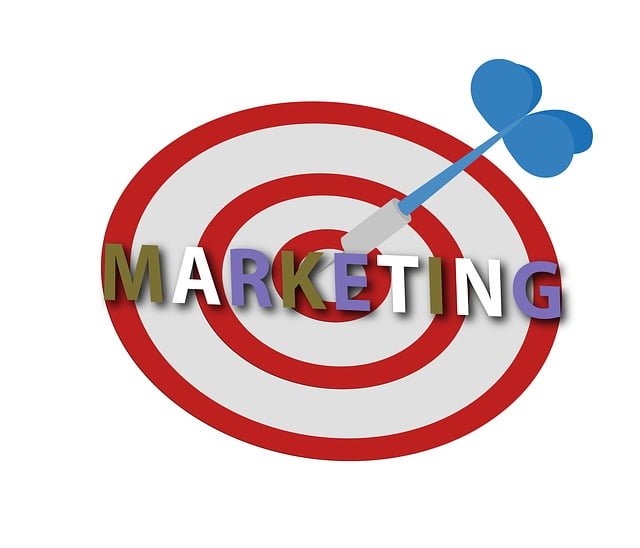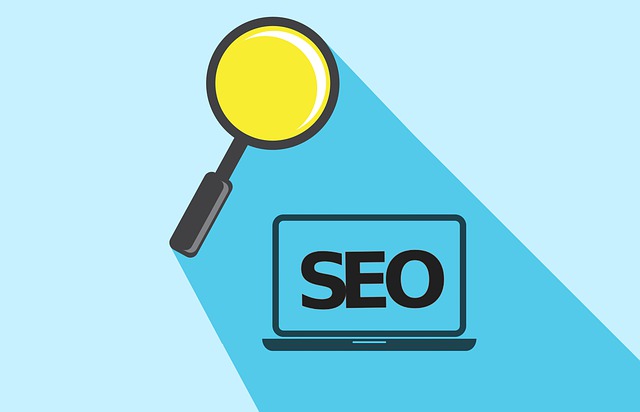30 years ago, in April of 1995, I discovered the World Wide Web (WWW) — the Internet. I was doing graphic design, creating newsletters, flyers, logos, etc., for small businesses. I saw the WWW and I said, “I can do that!” and I taught myself HTML coding. That started my 30-year journey through cyberspace. There was no WordPress, no GoDaddy, no site builders. I look back and am amazed at how the Internet has evolved. Here’s a condensed history of the Internet from 1995 to the present that highlights some of the pivotal points.
The History of the Internet
1994-1996

- The World Wide Web is born: The release of the Mosaic Netscape 1.0 browser marks the beginning of the modern Internet era. It opened the world to anyone with a computer and a modem.
- Commercialization of the Internet: The National Science Foundation (NSF) lifted restrictions on commercial traffic, which opened the floodgates for businesses to establish an online presence.
- This accelerated as the Internet shifted from a primarily academic network to a global marketplace. Companies like Amazon and eBay emerged, kicking off the “Dot-Com” Boom.
- Some of the early search engines and lists were Yahoo!, AltaVista, Lycos, Excite, and Ask Jeeves (now Ask.com). I got my Yahoo email and still use it for personal use!
Living in Miami, I connected with the first ISP (Internet Service Provider), Netrunner, which offered Internet access. People were asking them who they knew to create web pages, and they recommended me. I found that I had an uncanny ability to learn software programs quickly. To help promote my newfound skill, I held classes for members of the North Dade Chamber of Commerce. I showed them…

- What is the Internet?
- Where is it going?
- Why your business needs to be on it.
Funny, how I’m still teaching the same thing regarding social media, websites, and digital marketing.
I remember doing an article for a local newspaper on industries that the Internet would revolutionize. On top of my list were Real Estate, Travel and Tourism, and Retail. Today, these industries couldn’t function without it.
Connections were very, very slow in those days. Dial-up required a phone and a modem, and it took forever to connect and “surf” the Internet. I’d click on something and go wash dishes or something while I waited for a webpage to load.
AOL

I can’t write a history of the Internet without mentioning AOL. AOL’s origins trace back to 1983. In 1985, it functioned under the name Quantum Computer Services and it eventually evolved into America Online (AOL) after a rebranding in 1989. This transformation set the stage for AOL to become a dominant force in the dial-up era and an iconic part of early Internet culture.
I remember when I first encountered email at a friend’s house. I saw it and said, “Who needs that?” Look where we are now! We can’t live without checking email. Back then, we anxiously waited for that iconic “You’ve Got Mail” greeting.
My first email address was “GigiMiami@aol.com”. It feels like a lifetime ago!
1997-1999
- SixDegrees.com was founded in 1997 and was the very first recognizable social network. SixDegrees allowed users to create profiles and connect with friends, laying the groundwork for later platforms.
- Google was founded in 1998 by Larry Page and Sergey Brin. They introduced a novel approach to organizing information online with its PageRank algorithm. This new way of searching the web set the stage for the explosive growth of digital information. The trick was how to fool the search engine into ranking your website above others. That launched the whole Search Engine Optimization (SEO) industry.
- IRC (Internet Relay Chat), introduced in 1988 by Jarkko Oikarinen, fundamentally reshaped online interaction by creating the first widely adopted, real-time, text-based communication protocol. By allowing people to connect across individual servers in a decentralized network, IRC popularized the concept of public channels and private messaging. It was the start of chat rooms, instant messaging, and chatbots.
- In 1999, Napster launched, popularizing peer-to-peer file sharing and upending the traditional music industry. Its impact sparked both enthusiasm for freer content exchange and debates over copyright, reshaping media consumption habits.

Ancient SEO
Back then, after I finished creating a website, I had to list it in all the search engines and directories. We could have waited until it was “crawled”, but that would take forever. Eventually, someone created a way to enter the URL in one place and submit it everywhere.
Y2K
A tech crisis and a cultural phenomenon.
The problem started way before the year 2000. In the early days of computing, programmers used two-digit formats for years (e.g., “98” instead of “1998”) to save precious memory space. As the new millennium approached, people realized that when the year rolled over from “99” to “00,” computers might interpret it as 1900 instead of 2000. This could wreak havoc across industries, disrupting financial transactions, power grids, air travel, and essential systems.
Cue mass hysteria: governments and corporations scrambled to fix the issue, spending billions on Y2K preparedness. Some feared widespread system failures, societal collapse, or even apocalyptic chaos. Some conspiracy theorists called it “The End of the World!” Y2K patches were created and installed in computers to hopefully save the world.
Fortunately, when the clock struck midnight on January 1, 2000, nothing happened. The world went on as usual.
2000-2003
When the new century rolled around, people saw it was safe to get on the Internet, and it boomed. My businesses boomed. It was wild.
- Yet, the dot-com bubble burst. Overvaluation of Internet companies led to a stock market crash, causing many startups to fail. This economic shakeout not only redefined investment strategies in tech startups but also paved the way for more sustainable business models on the Internet.
- In 2001, Wikipedia launched, offering an unprecedented model of open, collaborative content creation. This platform democratizes knowledge-sharing and became a key reference point for information on nearly every subject. This was the end of large volumes of encyclopedias.
- Friendster launched in 2002 as one of the earliest networks to gain widespread attention, using many of the social connectivity features that would appear in later sites.
- LinkedIn was also born in 2002-2003 as the first professional online place to network. It’s still the place to connect with colleagues, business owners, and future employers, while gaining credibility as an expert in your field.
- MySpace came around in 2003 and quickly surged in popularity, especially within the music and entertainment scenes. At its peak, it was the leading social networking site in the mid-2000s. It died due to bad management.
WordPress

WordPress has a fascinating origin story, rooted in the early days of blogging and open-source software.
Back in 2003, two developers, Matt Mullenweg and Mike Little, decided to build upon an existing blogging platform called b2/cafelog, which had been abandoned by its original creator. Their goal was to create an easy-to-use, customizable, and open-source Content Management System (CMS). That effort led to WordPress 0.7, the first official release.
Over the years, WordPress has evolved from a simple blogging tool into a powerful CMS and website creating platform, thanks to continuous improvements, a vast plugin ecosystem, and the rise of themes that allowed users to customize their sites. By the mid-2010s, WordPress dominated the internet, powering over 30% of all websites worldwide. Today, it remains one of the most influential web platforms, used for everything from blogs and business sites to e-commerce and even enterprise-level applications.
Its open-source nature and strong community have ensured its longevity and adaptability, making it a staple in digital publishing.
Related: Why I Prefer WordPress for Websites
2004
- Facebook launches, connecting people in new ways and transforming online social interactions.
- Web 2.0 emerges: Dynamic, user-generated content becomes the norm, with blogs, wikis, and social networking platforms gaining popularity.
The Birth of the Blog

Blog is short for “web log”. This platform gave the average person a voice online. Blogs burst out from platforms like Blogger, owned by Google, and later WordPress. Anyone could write about anything. (I delve deeper into blogging in this article.) Needless to say, the blogging boom gave rise to a new era of personal journalism and content marketing, transforming how ideas and news are shared.
Today, blogging gives not only individuals a voice online, but businesses can also give free advice, share their expertise, and become known worldwide. It also helps tremendously with SEO.
I recommend blogging regularly — at least once a week — to keep your fresh content in front of Google.
2005
YouTube – The Video Revolution

YouTube went live in 2005, offering a user-friendly platform for sharing video content. This marks a significant shift in media consumption—from traditional broadcast and cable TV to on-demand, user-generated video that reaches a global audience. YouTube dramatically changed how we share and consume video, giving rise to a new era of content creation and online entertainment. Personally, that’s where I get my news. I can subscribe to the channels that are important to me.
Its popularity launched the careers of many “YouTubers.”
Besides that, it’s owned by Google and it’s the 2nd-largest search engine, next to its parent. Learn how to leverage the power of YouTube here.
Established in June 2005, Reddit introduced a community-driven model where users submit, discuss, and vote on content across countless “subreddits” covering nearly every topic imaginable. It’s also the start of microblogging. Today, Reddit’s resurgence is due to Google indexing its subreddits.
One of my clients had a significant amount of visitors to her website from Reddit, so I told her she should have a presence there.
2006 – 2010

- Twitter entered the social media realm in July 2006. Twitter pioneered real-time microblogging with its 140-character (later 280-character) limit. It reshaped how news, opinions, and conversations spread online. I got on Twitter in 2006 to promote a novel I wrote. In 2022, Elon Musk saved Twitter from extinction and eventually renamed it “X”. Besides being a free speech platform, it’s still a major content marketing and SEO force.
- Tumblr, founded in 2007, was a microblogging platform that combined text, images, quotes, and multimedia. It enabled a creative and diverse form of digital expression. It was the place to reach Millennials in college at the time. What happened to Tumblr? Automattic, who owns Tumblr has been struggling with it. Despite its challenges, Tumblr still has a dedicated user base, especially in niche communities. It seems the Millennials stuck around.
- The iPhone launched in 2007, igniting the Mobile Internet Revolution. Now, users had access to the Internet anywhere they went. “There’s an app for that!” was the tagline for Apple. Fundamentally, it changed how people interact with digital content and services throughout their day.
- DuckDuckGo made its mark in 2008 by emphasizing privacy and non-tracking search results. While its market share remains smaller than that of the giants, its focus on user privacy has earned it a loyal following and a prominent place among alternative search solutions.
- Also in 2008, we had a new browser horizon when Google Chrome debuted, emphasizing speed, security, and a user-friendly experience. The browser’s success pushed industry standards higher and influenced how web browsers are designed worldwide.
- WhatsApp came onboard in 2009 and grew into one of the world’s premier messaging apps, known for its simple, reliable approach to global communication (later acquired by Facebook).
- Bing was developed by Microsoft in 2009 as the successor to MSN Search and Windows Live Search. Bing entered a market already dominated by Google and it still struggles to get market share. However, with unique features, different indexing methods, and integrated services, Bing carved out its own niche as a major search engine.
- Pinterest was established around December 2009 and gained widespread adoption by 2010. Pinterest became a leading visual discovery and bookmarking platform, inspiring millions with ideas and creative content. The big intrigue was that you had to be invited by someone who was already on it. When it first came out, all I saw were cupcakes and babies. Now, it’s the place for marketers to reach consumers when they are planning to do something.
- With the growing use of smartphones, Instagram launched in 2010 as a mobile-first photo-sharing application. Instagram quickly captured imaginations with its emphasis on visual storytelling and has since expanded to include videos and other creative tools. Communication shifted from text to visual storytelling. This change influenced both personal expression and digital marketing strategies.
- 2010 brought the rise of big data: The amount of data generated online exploded, leading to new techniques for data storage, processing, and analysis.
- The Internet of Things (IoT) gained momentum: Connected devices proliferate, blurring the lines between the physical and digital worlds.
In 2010, I built my first WordPress website for an employer. It was on-the-job training! Today, I live on WordPress. For me, it’s the best website platform out there.
2011 – Present

After being laid off for the 2nd time in 3 years, I decided that I could start a business teaching small business owners how to promote themselves online via blogging and social media. Hence, AZ Social Media Wiz was born in November of 2011.
I held Meetups in various places, and people kept coming up to me asking, “Can’t I just hire you to do it for me?” I said, “Sure”. After a while, I realized that it’s best to teach small business owners how to do it themselves. It’s not that difficult! Here’s what you need to do.
Many times, after helping clients get their social media going, we realized that their website was bad and not working properly. They weren’t getting conversions. Therefore, I expanded my services to include website design and redesign, SEO copywriting, as well as social media marketing.
- Snapchat was born in 2011 and popularized the concept of ephemeral messaging—where images and videos disappear after a short time—and reshaped how younger users communicate visually and playfully. Instagram soon copied this with “Stories”.
- In 2013, Edward Snowden’s disclosures regarding government surveillance brought privacy issues to the forefront. The revelations spark global debates on digital rights, data security, and the balance between transparency and intrusion.
- The following year, the principle of net neutrality—ensuring equal access to all online content—became a heated regulatory and political issue. This debate influenced how ISPs managed traffic and shaped ongoing discussions about digital democracy.
- Google My Business launched in June 2014 as a free tool to help business owners manage their online presence across Google Search and Maps. It is now Google Business Profile and all businesses should be on it — especially local ones.
- In 2015, Artificial intelligence (AI) entered the mainstream: Machine learning algorithms power new applications, from chatbots to image recognition. 10 years later, AI has dominated not only research but also content creation and search engines.
- TikTok originally launched as Douyin in China in 2016. TikTok was introduced to a global audience in 2017. It quickly became a sensation due to its short-form, algorithm-driven video content that appeals to a broad, international audience. Will TikTok survive? Who will buy it? As of this publishing, it’s still up in the air.
- In 2018, the privacy issue surged with the European Union’s General Data Protection Regulation (GDPR) which was implemented. It imposed strict guidelines for data handling and privacy. The regulation not only reshapes policy in Europe but also sets a precedent for digital data rights globally.
- 2019 brought the misinformation and digital trust to the forefront. Increasing concerns around misinformation on social media drove vigorous debate about the roles and responsibilities of online platforms, digital literacy, and the need for transparent algorithms and ethical data use.
- The content restriction on the major social networks led to the birth of alternative social platforms. Rumble mirrored YouTube. Truth Social, Donald Trump’s network, mirrored Twitter. There were also Gab, MeWe, and Frank. They never gained the popularity of the legacy networks.
- 2020 and the pandemic created a need for businesses to quickly pivot and sell online. This created an ecommerce boom. Online conferencing via Zoom also took off. What saved my business then was blogging and Zoom webinars. It was the digital transformation.
- The Metaverse dawned in 2021 when Facebook rebranded to “Meta”. This was a strategic pivot toward building immersive virtual environments. This reorientation reflected broader ambitions within tech to transcend traditional online experiences.
- 2022: Generative AI and the New Digital Frontier. Advanced AI Language Learning Models (LLMs) such as ChatGPT captured global attention, transforming everything from content creation, research, and customer service to digital art and education. This breakthrough heralds an era where generative AI tools become integral to everyday online interactions.
- 2023–Present: Evolving Governance and an AI-First Internet. Debates about data privacy, algorithmic transparency, and ethical technology continue to shape global policy. Concurrent developments in 5G, edge computing, quantum computing, and further AI innovation signal an ongoing evolution toward a more personalized, decentralized, and intelligent web ecosystem.
Internet Knowledge is Critical

When I started creating websites back in 1995, the Internet wasn’t even a household word. No one knew what it was, what it could do, or how to use it. Funny, but that problem still exists when it comes to small business marketing.
Nevertheless, this timeline illustrates how technological innovations, regulatory shifts, and cultural revolutions have collectively forged the modern Internet—a constantly evolving space that blends creativity, commerce, and community.
In conclusion, the Internet has come a long way since its early days, and it continues to evolve rapidly. As we move further into the 21st century, the Internet will continue to play an important role in our lives, connecting us in new ways and transforming how we live, work, and play.
The Internet is not going anywhere. Embrace it. Adapt to it. Learn it. Otherwise, you’ll get left behind in the dust.
If you’re struggling to effectively market your business online, please book a free 15-minute Zoom call with me.
And please connect with me on the social networks:









